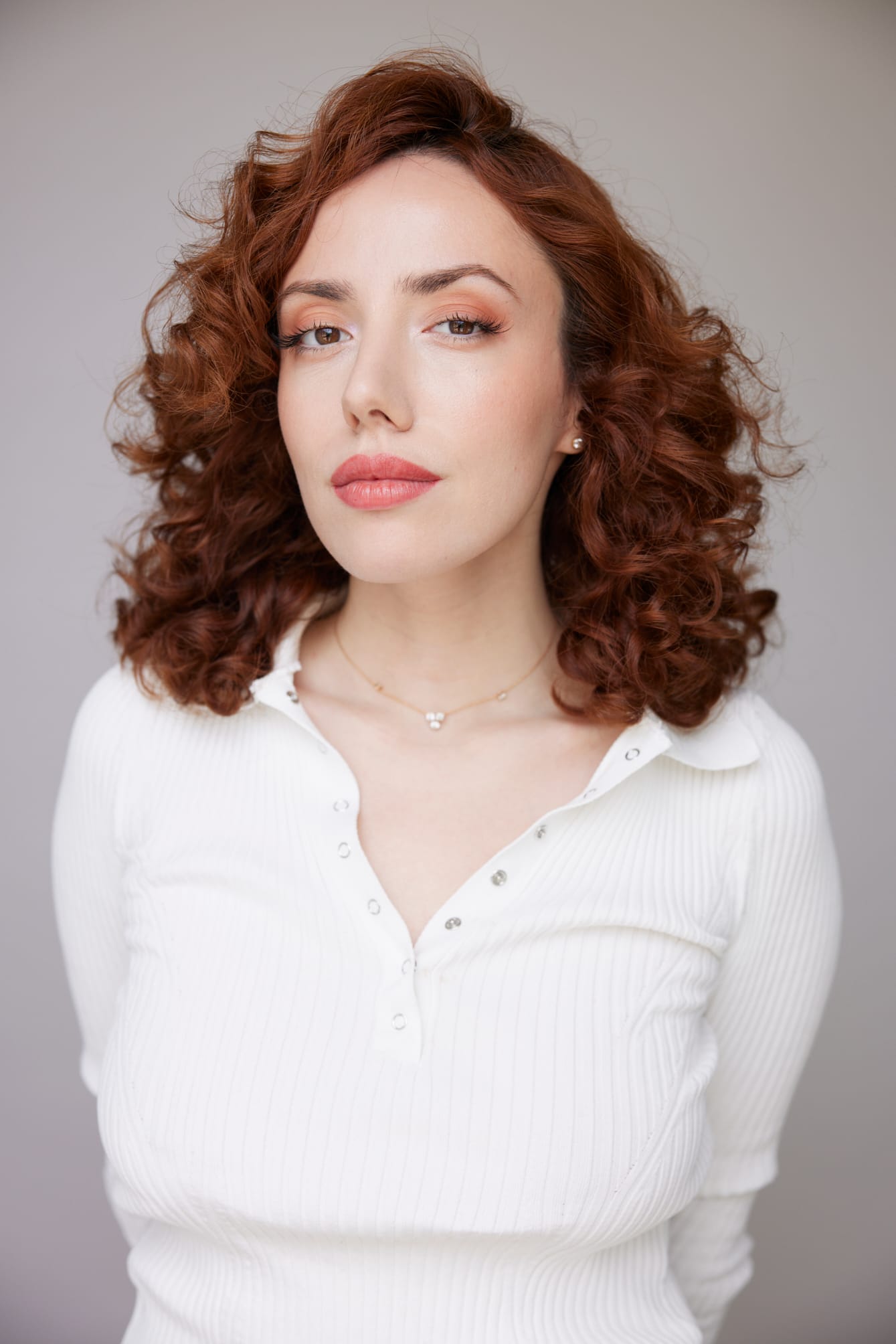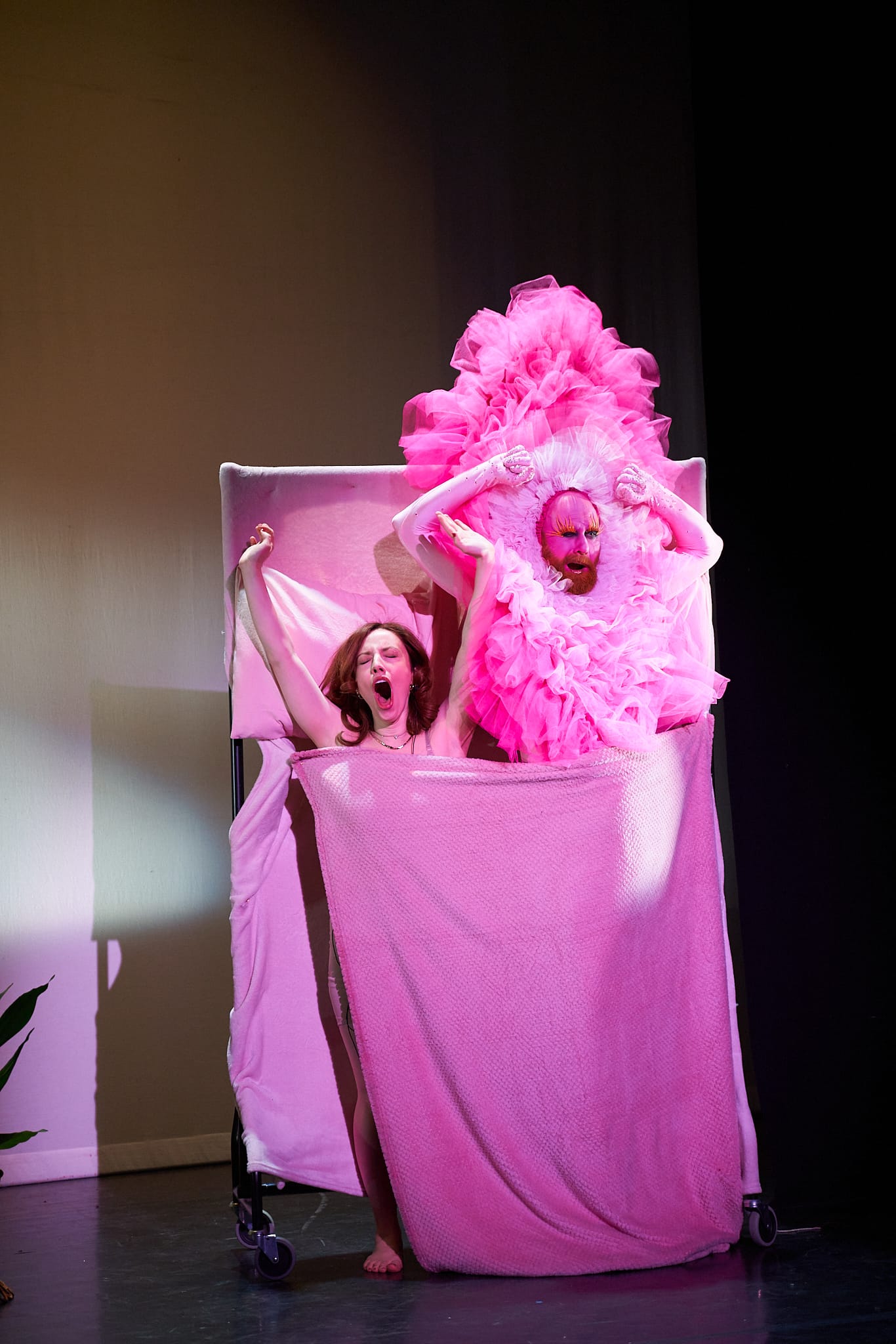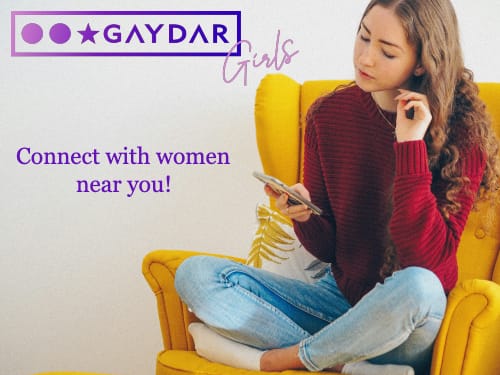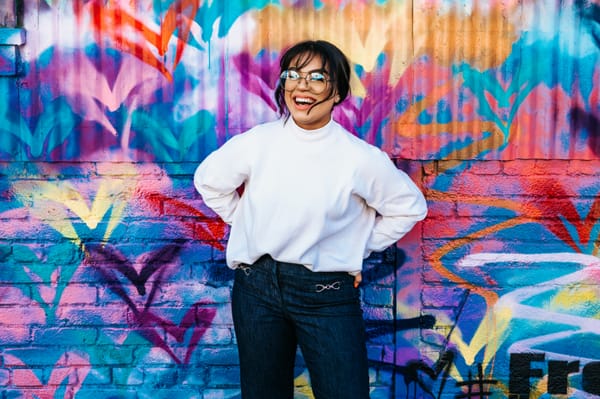Theatre Watch: The Little Death
Mina Orak brings her search for orgasmic pleasure to the stage.

Described as a blend of cabaret, comedy, and thought-provoking storytelling, The Little Death promises show-stopping theatre with a queer twist.
The narrative centres around Mina - a spirited young Turkish woman on a wild quest to find the one thing missing her life, an orgasm.
Following Mina’s journey of self-discovery, the show reflects on themes of love, loneliness and the human condition.
We caught up with Mina Orak - the creator and star of The Little Death - for a behind-the-scenes look at the production.

What was the inspiration for this show?
The show was inspired by a question I was asked in July 2022: "How do you feel after sex?" My response was, "Like I'm going to die alone." Dramatic I know.
At that time, I was ten months out from a long-term dissatisfactory relationship and struggling to reconcile my sexual desires with my need for emotional connection.
During encounters, I’d feel deeply connected in the moment, but after the other experienced release, I was often left feeling pent-up, angry, and sad. It felt as though the bed beneath me turned into a sinking hole, leaving me engulfed in emotions that the other person couldn’t relate to. My libido wanted one thing, but my heart couldn’t keep up, creating a storm of inner turmoil.
This struggle is a constant in my life, influenced by the conflicting perspectives on women and sexuality that I’ve encountered from being raised between two distinctly different cultures which have profoundly shaped my understanding of intimacy and self.
A culmination of all these elements brought together this show!
Why do you think orgasms are such a big deal?
From a scientific standpoint, orgasms are significant for both physical and emotional reasons. They create a sense of euphoria by releasing endorphins, which reduces stress, and they also foster emotional intimacy. As a key component of sexual satisfaction, orgasms are linked to various aspects of the human experience.
When did I become so fixated on the fact that I couldn't orgasm?
For me, an orgasm is more than just a physical reaction to pleasure; it's a moment of peace and connection with someone. Initially, it wasn't something I focused on, but my partners often brought it up, expressing that my lack of orgasms made them feel inadequate. This, in turn, made me feel bad about myself. As they felt less, I felt worse for causing them to feel that way.
As someone who often lives in her own mind and unfortunately tends to view relationships through a lens of power and control, an orgasm represents a rare opportunity for genuine connection with both my body and another person.
This moment of release grounds me in the human condition. When I experience it alone, it is often followed by a feeling of shame, limitation and immediate disgust.
However, despite this complex relationship with orgasms, they are a profoundly human yet otherworldly experience—an out-of-body sensation that I hope can connect me to nature, my soul, and something beyond. I feel that I have so much life force within me that needs to be released. So, for me, orgasms are a big deal because I long to experience that profound connection and release that I've described.
How do we avoid falling into the trap of measuring our experience of sexual pleasure against what we see in popular culture or social media?
Sharing experiences and asking questions can make the topic feel more natural and less intimidating. Since sex is woven into everyday life—from advertising to fashion—there's no reason we shouldn't address it openly. By talking about it, we can gain a clearer view of our own experiences and avoid the trap of comparing to media portrayals.
It's important to keep things real and personal. Focus on recognising and accepting your own desires and boundaries, rather than trying to fit into media's or cultures ideals. Educate yourself with reliable sources that present a more realistic view of sex. Having open conversations with partners or friends can help you recognise that there's no universal one-size-fits-all approach and can reduce the pressure and discomfort of expectations. Be critical of portrayals and adjust your consumption to avoid setting yourself up for disappointment. That’s the advice I can offer from my own journey.
I’m actively working on accepting my own kinks and understanding their origins. You don’t have to share everything with everyone, and sometimes the best step is to seek guidance to build a more authentic and fulfilling sexual experience.
Right now, I’m taking a step back from sex, focusing on aligning my heart and mind with my true desires. It’s a journey of gradual progress and self-discovery. It’s all about taking baby steps and learning as you go.
While the experience of sexual pleasure is a basic human need that we all share and experience, cultural nuances often shape how we talk about and articulate our expectations and desires? Is the intention of The Little Death to help equip women with a common language to have these conversations?
Yes, absolutely! While The Little Death predominantly speaks to women, its aim extends beyond gender to bridge cultural gaps and provide a common language for discussing complex sexual experiences.
The show addresses themes of vulnerability, cultural expectations, and self-discovery, fostering open dialogue and a deeper understanding of diverse experiences.
Cultural influences profoundly impact how we perceive and discuss sexuality. My upbringing in Istanbul and Toronto has provided insight into how different cultures approach female sexuality —one more conservative, the other more liberal. This duality shapes my own perspective and the show’s narrative.
By exploring these cultural nuances and societal taboos, The Little Death encourages viewers to reflect on how their backgrounds influence their understanding of intimacy and desire. It strives to create a space for honest conversation, helping individuals navigate their sexual journeys with greater clarity and confidence, and promoting a more empathetic understanding of sexual pleasure and self-discovery.
The credits include an actor cast as your vagina. How was that casting process for you? Did you have a clear vision of how you wanted your vagina brought to life on stage?
Interestingly, I wasn’t entirely comfortable with the idea of a woman portraying my vagina. For some reason, I felt that a male character would represent it better.
Despite my feminine traits, I have a strong masculine energy, especially in sexual encounters where I seek control and prefer to leave once it’s over.
This vision made me feel that a male portrayal would align more closely with my needs and past experiences.
Cornelis Joubert, cast as my vagina, comes from a multidisciplinary background in fashion and dance. This experience was crucial because my vision required the character to move dynamically on stage, appearing larger, bolder, and more visually striking than I do.
Cornelis’s emotional openness and gentle demeanour create a safe space for me to express both my positive and negative thoughts. I believe thoughts are just thoughts until we act on them, so separating them into “good” and “bad” doesn’t resonate with me.
In terms of costume design, Grace Carolan and Andrea Ozua did an excellent job bringing my vision to life. I was inspired by Victorian skirt bones during the creation of this character, so incorporating that element into the costume was important. The shades of pink were chosen thoughtfully, reflecting both the vibrancy and imperfections of the human body. Although my vagina isn’t neon pink, these elements are meant to highlight its uniqueness.
Tom Easto’s makeup work added a dramatic touch, enhancing the character with dark eyes and bold lashes, which gives the vagina a striking, almost menacing appearance. While the overall effect is lovely, I find the dramatic makeup adds a layer of intensity to the portrayal.
What do you hope that people feel when they come to see The Little Death?
When an audience sees the show, my co-director/writer Justin Atkins and I hope they leave feeling a deeper empathy and consciousness of the messy and pragmatic experiences of female sexuality.
The performance intends to shamelessly tackle the complexities, vulnerabilities, and growth that come with navigating intimate connections.
The show encourages viewers to reflect on the nuances of desire, love, and self-discovery.
The Little Death aims to capture a reality that ponders upon the role sexuality plays in the modern dating life of women.
The Little Death will run at the Kings Head Theatre in London from 26-31 August.







